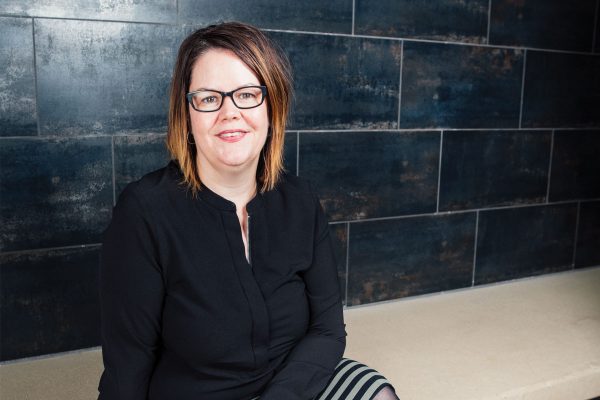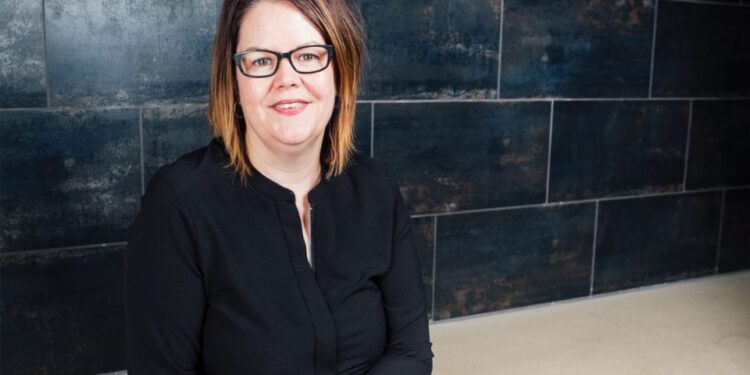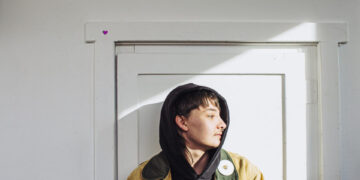When Catholic Charities of Omaha looked for somebody to take over its open race and identity forum, Omaha Table Talk, it found the right host in Inclusive Communities.
Formerly a chapter of the National Conference for Christians and Jews, the human relations organization was started in 1938 to overcome racial and identity divisions. While the name it goes by today may be unfamiliar, the work Inclusive Communities does in building bridges of understanding in order to surmount bigotry remains core to its mission. Many IC programs today are youth-focused and happen in schools and residential camp settings, but the programs are increasingly taken into workplaces.
Table Talk became one of its community programs in 2012. Where Table Talk used to convene people once a year around dinners in private homes to dialogue about black-white relations, it’s evolved under new leadership into a monthly event in public spaces tackling rotating topics.
The November session dug into law enforcement and community. The annual interfaith dialogue happens January 12. Reproductive rights and sex education is on tap March 22, and human trafficking is on the docket April 22.
The annual Main Event on February 9 will be held simultaneously at 20 metro area locations. As always, race and identity will be on the menu. Omaha North High Spanish teacher Alejandro García, a native of Spain, attended the October 13 Ethnic Potluck Table Talk and came away impressed with the exchanges that occurred.
“I had the opportunity to engage in very open conversations with people that shared amazing life stories,” he says. “I am drawn to things that relate to diversity, integration, and tolerance. Even though I think I have a pretty open mind and I consider myself pretty tolerant, I know this is an illusion. We all have big prejudices and fears of difference. I think these opportunities allow us to get rid of preconceptions.”
New IC Executive Director Maggie Wood appreciates the platform Table Talk affords people to share their own stories and to learn from other people’s stories.
“It’s exciting to be a part of a youth-driven organization that’s really looking to make a difference in the world,” she says. “It’s about putting the mic in people’s hands and giving them the opportunity to voice what they feel is important.
“Omaha Table Talk gives us the opportunity to have conversations we wouldn’t normally have in a structured way. Nobody else in town is doing this real conversation about tough topics.”
“These conversations do not happen in day-to-day life, at least not in my environment,” Garcia says. “I see people avoiding these topics. They find it uncomfortable and they are never in the mood to speak up for the things they might consider to be wrong and that need to be fixed. If you don’t talk about the problems in your community, you will never fix them.”
“The really beautiful thing about Omaha Table Talk,” Wood adds, “is it really brings about hope for people who see how more alike we are than different.”
IC, says Operations Director Krystal Boose, creates a safe space. “It’s so interesting to see how quickly people open up about their identities. Part of it is the way we utilize our volunteers to help navigate and guide those conversations.”
Gabriela Martinez, who participated in IC youth programs, now helps coordinate Table Talk. She says no two conversations are alike. “They’re different at every site. You have a different group of people every single place with different facilitators. We have a set of guided questions, but the conversation goes where people want to take it.”
Wood says the whole endeavor is quid pro quo.
“We need the participants as much as the participants need us,” she says. “We need individuals to be there to help us drive the conversation in Omaha. We put the tools in participants’ hands to go out and advocate for the change they want to see.”
She says IC can connect people with organizations “doing work that’s important to them.”
IC staff feel Table Talk dialogues feed social capital.
“We’re planting seeds for future conversations,” Martinez says, “and we’re giving a voice to a lot of people who think they don’t have one.” The recent Creighton University graduate believes milllennials like her “want and expect diversity and inclusion in workplaces. It’s not optional.”
“It’s not good enough to just empower them and give them voices and then release them into a world that’s not inclusive and shuts them back down,” Boose adds. “It’s our responsibility to help create workplaces for them that value inclusivity and diversity.” Boose says growing participation, including big turnouts for last summer’s North and South Omaha Table Talks “screams that Omaha is hungry for these conversations.”
Organizers say you don’t have to be a social justice warrior to participate. Just come with an open mind.
Visit inclusive-communities.org to learn more.
r













